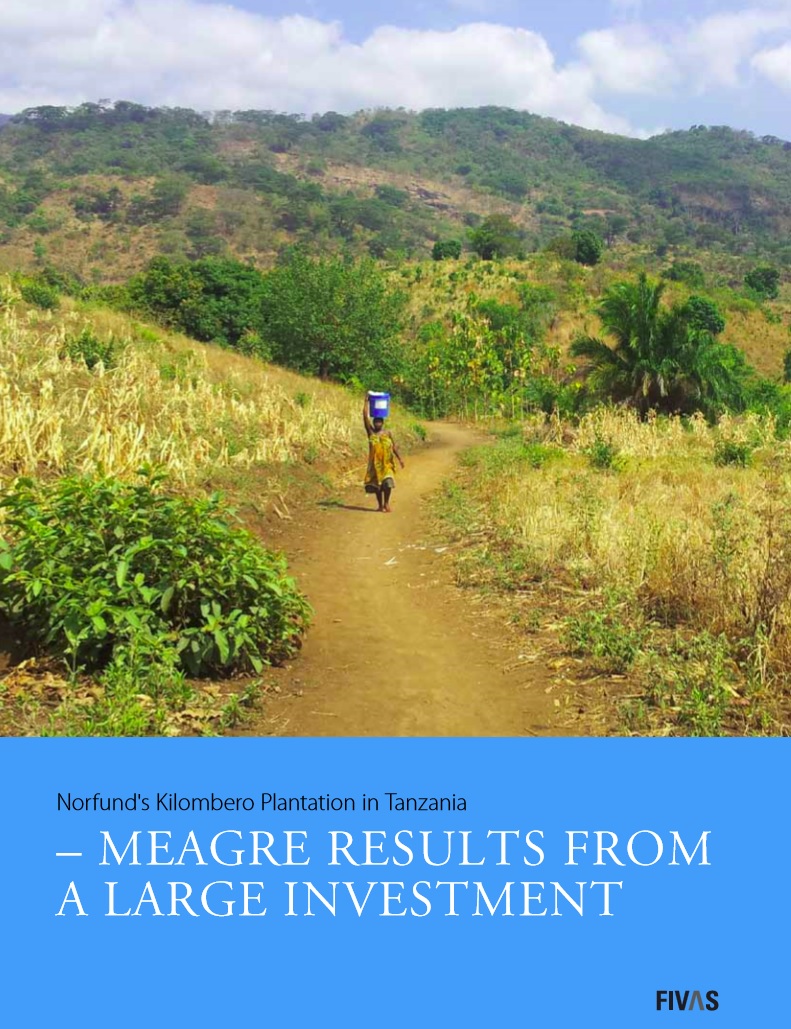 Jonas Holmqvist, Director, FIVAS
Jonas Holmqvist, Director, FIVAS
Read the full report here: Norfund’s Kilombero Plantation in Tanzania: – Meagre Results from a Large Investment
This report, written for Fivas by Catherine Wilson, set out to analyse water use by Kilombero Plantations Limited (KPL) in Tanzania and its effect on the people dependent on local water resources. Norfund, the Norwegian development finance institution, is invested in the plantation company KPL through its stake in Agrica Limited. The report finds that the water management regime of the plantation is affecting the local people minimally. Exposure to risks has increased slightly, especially for the poorer villagers unable to afford storage of water. The main risk emanating from the lack of improved water sources is however the responsibility of the Government of Tanzania, and not the company. The developmental effect however is unclear. KPL has contributed to the local and regional economy by buying materials and by hiring skilled and unskilled labour. These are however meagre spill overs compared to the planned effects of economical growth and increased domestic rice production.
More significantly this report shows that Tanzania, like many other developing countries, lacks the fundamentals for private sector development. The challenges from unfavourable circumstances have prevented the company from turning a profit in the first seven years. The still pending expansion of the plantation and the limited success of the outgrower scheme means that the contribution to reduce Tanzania’s dependence on imported rice has also been impaired. The marketing of rice from Kilombero was exposed to sudden shifts in the imported volume of rice and thus to a fall in prices. Volatile road taxation is another policy issue. There are also virtually no medium sized modern farms to recruit skilled labour from; there is a huge technological gap between mostly traditional household level farms and industrial plantations in Tanzania.
The unstable regulative regime and weak enforcement of policies are hallmarks of weak institutions. The large-scale investment favoured up until now will not benefit poor farmers in the short or medium term. One could argue that the prevailing mode is neither favourable for large agribusiness. This report shows how a matrix of criteria are necessary to create a beneficial environment for large-scale agriculture, most of which are missing or only partly present in Tanzania. A stable regulative environment, decent roads and a skilled workforce are some. Not to mention public water management. An increased effort on infrastructure, institutions and policies seem necessary before private sector investments can have a reasonable chance of impact on development. The spill over effects from foreign investments are biggest when the technology gap to the domestic enterprises is more moderate, allowing transfusion of technologies and skilled workers.
This study of water impacts was prompted by a report on the KPL project published in June 2015 by The Oakland Institute, Greenpeace Africa and Global Justice Now. The report raises a broad range of concerns, and has led to a continuing discussion between Norfund, the organisations and academics.

